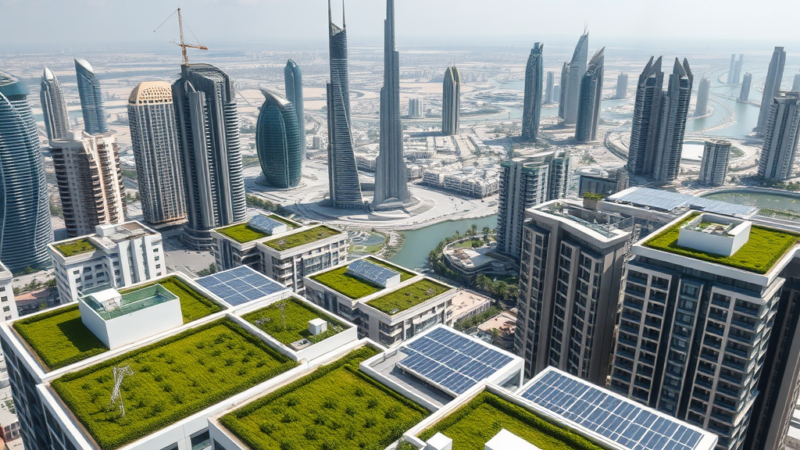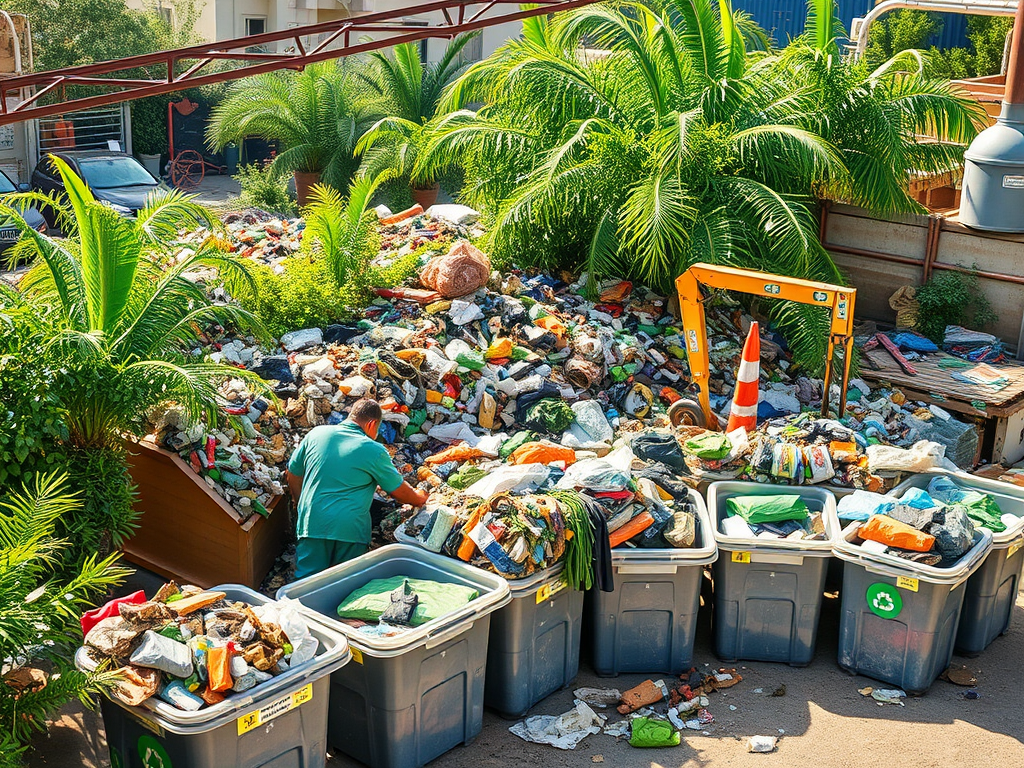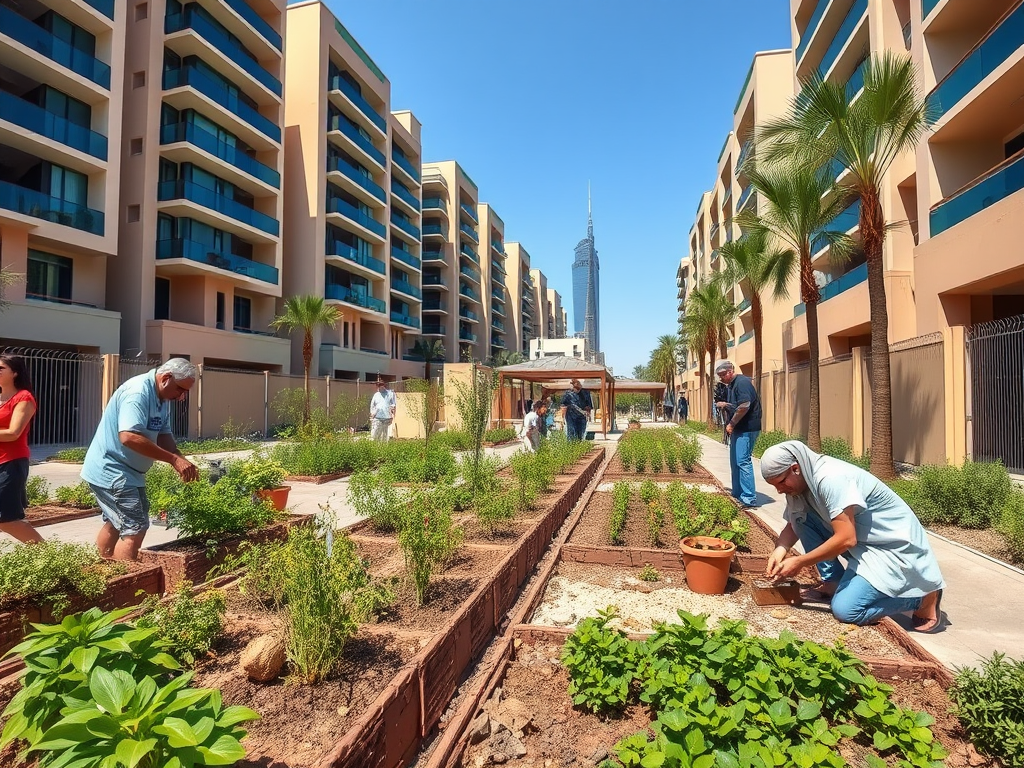The Potential of Dubai’s Circular Economy in Urban Planning

Dubai is poised to revolutionize urban planning through its commitment to a circular economy, aiming to minimize waste while maximizing resource efficiency. The city has recognized that by adopting circular economy principles, it can create a sustainable urban environment that not only maintains its rapid growth but also respects environmental boundaries. This article delves into the potential benefits and implementations of a circular economy within Dubai’s urban planning framework, analyzing how these initiatives can foster a sustainable future.
Understanding the Circular Economy

The circular economy is an innovative approach to economic growth that seeks to minimize waste and make the most of available resources. Unlike the traditional linear model of ‘take-make-dispose,’ the circular economy focuses on a regenerative system intertwined with sustainable design principles. In the context of urban planning, this means considering the lifecycle of materials, promoting reuse, recycling, and refurbishment to extend the use of products and resources. Some key aspects that define a circular economy include:
- Resource Recovery: Efficient use of materials that can be reclaimed, recycled, or repurposed.
- Sustainable Design: Creating products with end-of-life reuse in mind.
- Waste Minimization: Reducing the amount of waste generated throughout production.
- Long-life Products: Designing durable products that require minimal resources over time.
- Consumer Engagement: Educating and involving the community in sustainable practices.
Dubai’s Commitment to Circular Economy

Dubai’s strategic initiatives highlight its commitment to establishing a circular economy within urban planning. This commitment is clearly articulated in the Dubai Circular Economy Strategy, launched in 2021, aiming to divert at least 75% of waste from landfills by 2024. This ambitious goal aligns with the UAE’s Vision 2021, which emphasizes sustainability and environmental stewardship. By adopting the circular economy framework, Dubai can achieve several outcomes:
- Enhancing resource efficiency across various sectors.
- Improving air and water quality by reducing pollution.
- Fostering economic growth through new business models and green jobs.
- Attracting investments in sustainable technologies.
- Encouraging community involvement in environmental initiatives.
Implementation Strategies for Circular Economy in Urban Planning
To effectively implement a circular economy in urban planning, Dubai focuses on several strategies aimed at integrating sustainability into its urban fabric. These strategies include:
- Green Building Regulations: Establishing stringent guidelines to ensure new developments comply with circular economy principles.
- Waste Management Enhancements: Utilizing advanced technologies for waste sorting, recycling, and composting.
- Public Transportation Improvements: Investing in eco-friendly mass transit systems to reduce reliance on personal vehicles, thus lowering emissions.
- Incentives for Businesses: Offering tax credits and subsidies for companies that adopt sustainable practices and circular economy models.
- Community Engagement Programs: Developing educational campaigns to raise awareness about sustainability practices.
Several projects in Dubai serve as excellent examples of how circular economy principles can be incorporated into urban planning. Notable case studies include:
- The Dubai Marina Development: Incorporating waste management solutions and promoting green spaces within urban ecosystems.
- The Dubai Expo 2020: Utilizing sustainable materials, water conservation methods, and renewable energy sources across its site.
- The City of Dubai’s Waste Management Initiative: Implementing smart waste monitoring systems to optimize collection routes and time schedules.
Итог
Dubai’s exploration of the circular economy within its urban planning framework presents immense potential for sustainable growth, resource efficiency, and environmental stewardship. By leveraging innovative strategies and community engagement, the city can redefine its approach to urban development, making it a global leader in sustainable practices. The implementation of circular economy principles will not only benefit the environment but also economic scenarios, ensuring a safer and healthier urban landscape for future generations.
Часто задаваемые вопросы
1. What is a circular economy?
A circular economy is an economic model that promotes the continual use of resources and minimizes waste by emphasizing recycling, reuse, and sustainable design.
2. How does a circular economy benefit urban planning?
A circular economy benefits urban planning by enhancing resource efficiency, reducing pollution, fostering economic growth through innovation, and creating sustainable community practices.
3. What are some key initiatives of Dubai’s circular economy strategy?
Key initiatives include waste diversion from landfills, setting green building regulations, improving public transportation, and promoting community engagement in sustainability.
4. What role do businesses play in Dubai’s circular economy?
Businesses can play a crucial role by adopting sustainable practices, participating in recycling programs, and innovating green technologies that contribute to the circular economy goals.
5. How can residents contribute to Dubai’s circular economy efforts?
Residents can contribute by reducing waste, participating in recycling programs, utilizing public transport, and engaging in community sustainability initiatives.


